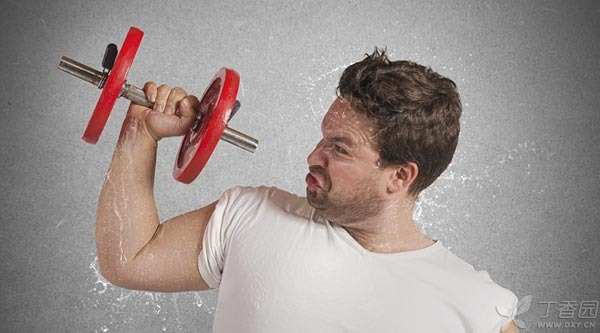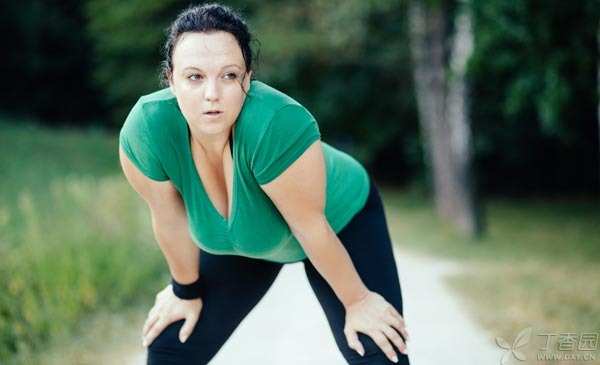
The so-called [March does not lose weight, April is sad, May is sad, June is sad]…
Finally, I made up my mind to lose weight again,Running, dumbbells, sit-ups, all on the schedule. Looking at the sweat oozing from every pore during exercise, I silently cheered myself up: [This is the best evidence that fat is burning! ]After a week or two, I really lost a few pounds.
But [at this rate, you can’t put on your favorite bikini after summer], it’s too slow.
So I listened to the advertisement, bought a sweatsuit and steamed it into a hot sauna. I didn’t have to work hard, but I was able to have a good time, sweat profusely and burn fat! How cool ~
However, why is the waist still not small and the thighs still so thick?
Can a lot of sweating reduce fat?
As we all know, people sweat when they are hot.
Sweat, in addition to a little salt and urea and other substances, 99% of the composition is water.
When the body produces more heat than dissipates heat, the body temperature will rise, and the temperature receptors inside and outside the body will transmit the body temperature changes to the hypothalamus, the body’s thermoregulatory center. The hypothalamus will use sweat evaporation to take away excess heat by exciting sympathetic nerves, increasing skin blood flow, increasing sweat gland secretion, etc. to maintain the body temperature balance.
During exercise, muscle activity generates a large amount of heat. In order to maintain normal body temperature, the body must increase sweat secretion to promote heat dissipation.
This part of the lost water will indeed make the figure on your weight meter smaller, but this change is only temporary. As long as the water is replenished in time, the weight will soon rise back.
During sauna, although there is no increase in heat production caused by exercise, as the external environment temperature is close to or higher than the body surface temperature, the decrease in temperature difference makes the heat released by the body through air convection, heat radiation and other means limited, and the human body will also promote heat dissipation by increasing skin blood flow and sweating.
In order to lose weight faster, some people wrap plastic wrap [sweat] around their bodies during exercise, which is actually the same as sauna.
The practice of wrapping plastic wrap [sweating] has no effect of [losing weight] at all.
After steaming sauna, although it looks the same as after exercise, with ruddy complexion and sweating profusely, this kind of sweating is just a way for the body to regulate its body temperature. At best, it can only dehydrate people, but it cannot [degrease], let alone [detoxify].
If you blindly pursue sweating, wear airtight and sweat-absorbing sweating clothes and sauna clothes, stay in a high temperature environment for a long time, and do not supplement water and salt in time, it will lead to body temperature imbalance and neuroendocrine disorders, thus causing heatstroke, dehydration and other situations requiring medical intervention. In serious cases, it will even lead to organ failure and endanger life.

Fat burning? It’s not as easy as you think.
If you think of the human body as a machine, its normal operation requires burning [fuel].
Human fuels mainly include carbohydrate (carbohydrate), lipid fat and protein. Although all three fuels can be used to provide energy, in order to improve efficiency, different fuels have different priorities:
- Sugar is the main energy supply substance, but its reserves are small. Fat is the main energy storage substance. Protein is the main undertaker of the body’s life activities, and oxidative energy supply is its secondary responsibility.
In the case of complete oxidative decomposition, carbohydrate and protein can provide 4 kcal of energy per gram, while lipids can provide 9 kcal. In terms of quantity, it seems that burning fat is more cost-effective.
In fact, the speed of oxidizing fat to provide energy is the slowest, which is also the reason why the body prefers to use sugar for energy supply.
The [sugar] (i.e. [carbohydrate]) in the ordinary body is mainly stored in the liver and muscle in the form of glycogen, which is about 380 g and can provide about 1,500 kcal of energy.
However, moderate-intensity physical exercise (cycling, swimming, running, etc.) consumes about 600 ~ 800 kcal of energy per hour. If sugar is not supplemented, glycogen in the body will gradually deplete after cycling for 2 hours or jogging for 25 kilometers. After that, the body will begin to switch to fat-based energy supply.
That is to say, if you insist on exercising for 30 minutes to 1 hour, it seems that the amount of exercise is very large, which also makes you sweat profusely and gasp, but the energy source is mainly glycogen stored in the liver, and fat is hardly involved.
This is the reason why [fat is hard to lose].

Want to burn fat quickly? Try exercising on an empty stomach
It is easier to burn fat than short-term exercise, high-intensity exercise, marathon running or walking in the park for several hours.
In terms of time, Morning exercise before breakfast is a good time to burn fat, This is because if you stop eating after dinner, The body continues to be in a state of consumption. In the early morning, glycogen in the body is almost consumed. During exercise at this time, the body can mobilize more fat to supply energy in order to maintain the blood sugar level, and the fat burning efficiency is also relatively high. However, in order to prevent hypoglycemia and further improve the fat burning efficiency, it is recommended to eat one or two biscuits first.
In addition to correctly grasping the exercise methods and timing, the diet structure should also be adjusted.
This requires eating less high-fat and high-sugar foods to appropriately reduce calorie intake. But don’t go on a diet. If the body lacks compound B vitamins, lipoic acid, coenzyme Q10, minerals and other substances, the metabolism of sugar and fat will encounter obstacles.
Therefore, it is not feasible to lose weight by dieting.
Rome was not built in a day, and healthy fat reduction must be a long-term process. Weight loss cannot be achieved overnight. Taking a shortcut to fast weight loss is doomed to fail.
Responsible Editor: Ding Ruoshui
